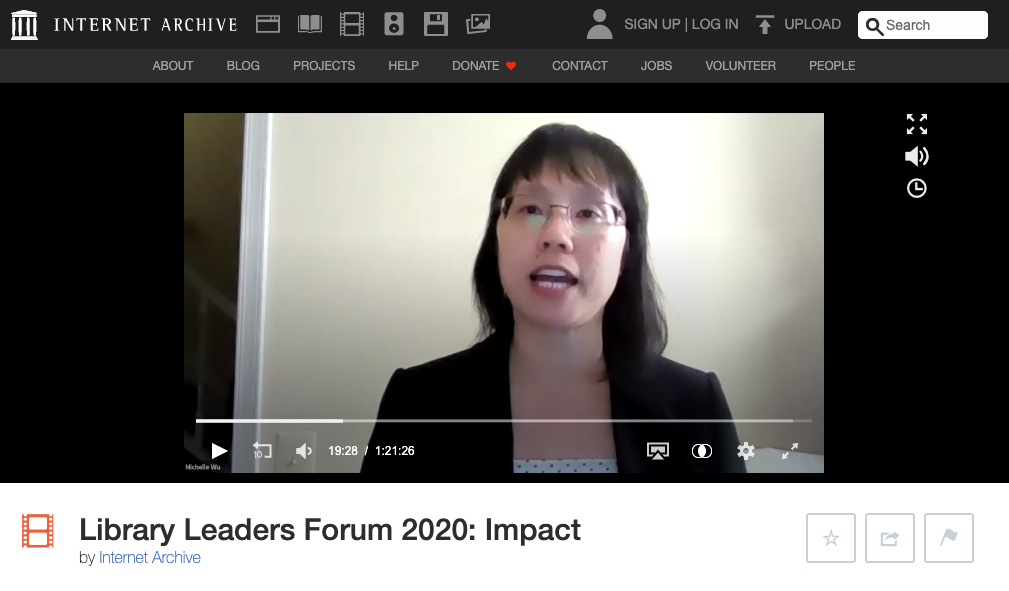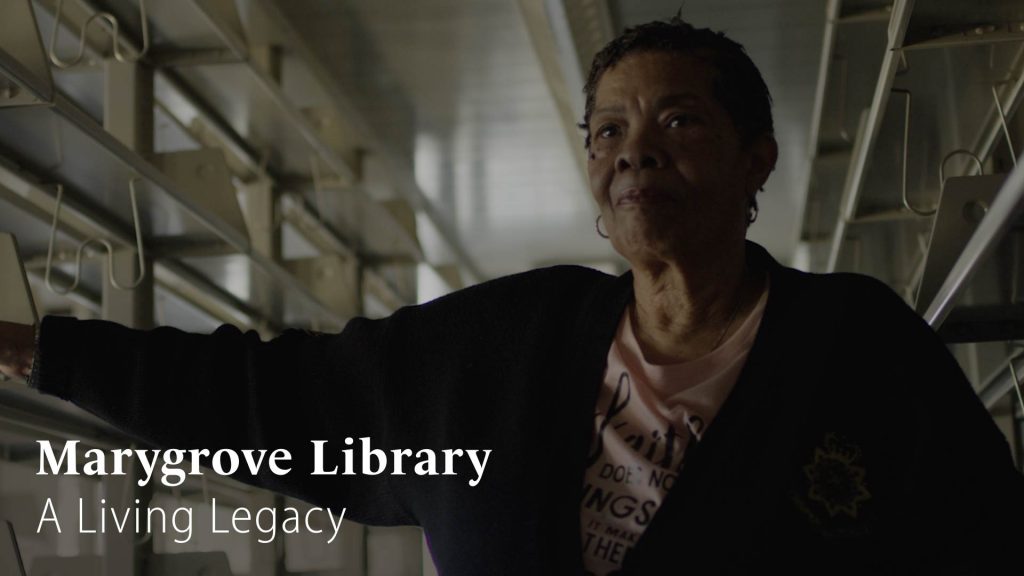
The third and final session of the 2020 Library Leaders Forum wrapped up Tuesday with a focus on the impact of Controlled Digital Lending on communities to provide broader access to knowledge. A full recording of the session is now available online.
Michelle Wu was honored with the Internet Archive Hero Award for her vision in developing the legal concept behind CDL. In her remarks, the attorney and law librarian shared her thoughts on the development and future of the lending practice. Wu does not see the theory that she designed 20 years ago as revolutionary, but rather a logical application of copyright law that allows libraries to fulfill their mission.
Despite current legal challenges, Wu predicts CDL can continue if libraries make themselves and their users heard.
“We must make sure that the public interests served are fully described, visible and clear to lawmakers and courts at the time they make their decisions,” Wu said. “If we do that, I believe the public interest will prevail and CDL will survive.”
The pandemic has underscored the need for digital access to materials and changed attitudes about CDL among libraries that had previously been risk averse to the practice, Wu said.
“The closing of our libraries due to COVID has changed that mindset permanently,” Wu said. “It showed how the desire to avoid risk resulted in the actual and widespread harm to populations, depriving them of content at a time when access was more important than ever.”
Because of the pandemic, libraries are now empowered to try innovative practices to serve their patrons.
“With this new heightened awareness, I think the future of access is brighter,” Wu said. “Not only do I think CDL will flourish, but there seems to be very real chance that libraries will more aggressively fight to regain some of the public interest benefits of copyright that they’ve lost over the years.”
In the future, Wu maintained that CDL can ensure a balance for full and equal access to knowledge for every person.
“Reliable access to information is the great equalizer,” Wu said. “Information shapes each of us, and lack of it is part of what increases our divide.”
(A complete profile of Wu’s work can be found here.)

The event also included the virtual ribbon cutting ceremony announcing the reopening of the Marygrove College Library. The Internet Archive now houses its 70,000-volume library online, and has preserved the physical copies, after the institution closed the campus in 2019 and donated its entire collection for digitization. The move preserves books that reflect the college’s rich history of social justice and education programs that largely served women, African Americans and low-income students in Detroit.
“The knowledge that [the books] would still be available and still be utilized just keeps us going as we wrap up the college,” said Marygrove President Elizabeth Burns at the Forum. “It’s a sad, sad time, but it is also a time where we know the impact of the college will continue…It’s a very tangible measure of Marygrove for the future.”
Chris Freeland, director of Open Libraries at the Internet Archive, moderated a panel with Marygrove librarian Mary Kickham-Samy, Mike Hawthorne, a librarian at nearby Wayne State University, and Brenda Bryant, dean and director of Marygrove’s social justice program, to talk about the transformation of the library into a digital format.
“It’s exciting! I’m thrilled that it won’t be in just one small corner,” said Bryant of the library’s move online and value to scholars. Bryant built the nation’s first Master of Arts program in social justice at Marygrove and considered the library one of the best kept secrets on campus. “Like my activist friend Elena Herrada [said], the collection was important because in Detroit, reading is an act of resistance.”
For more about Marygrove’s story, read our online profile.